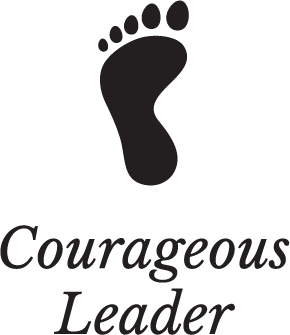Imagine running a business where every decision boosts your bottom line and betters the world. That’s not just a dream; it happens when implementing sustainable management techniques.
Companies around the globe are catching on to the fact that sustainable growth isn’t just good for the planet; it's great for business. It's about making smart choices that ensure your business thrives for the long haul, cares for its people, and respects the planet. Next, we’ll explain how you can make this happen in your organization.
Strategic Planning with Sustainability at Its Core
The new era of strategic planning isn't just about being the biggest; it's about being the best for the world. Integrating sustainability means looking at long-term goals through a green lens.
Are you setting targets that reduce your environmental impact while driving profitability? Are you designing products that are both consumer favorites and eco-friendly? The real magic happens when your strategic plans consider the financial outcomes and how you impact the planet and society.
This holistic approach prepares your business to adapt to environmental regulations before they arise and positions your brand as a leader in sustainability.
Engaging Stakeholders for Broader Perspectives
Imagine a strategy cooked up in a silo versus one that’s simmered with insights from a diverse group of people. Which is the robust flavor needed to thrive in today’s market?
Engaging your stakeholders (whether through surveys, focus groups, or community forums) gives you a 360-degree view of your business operations' impacts. This inclusivity strengthens your strategy, making it resilient and adaptive to changes.
Plus, it’s a fantastic way to build loyalty and trust. When people see their ideas and concerns being addressed, they’re more likely to support and advocate for your brand.
Corporate Social Responsibility: A Strategic Lever
Think of CSR as your business's chance to shine on a social level. Are your operations adding value to the communities you operate in? Are you proactive in your environmental conservation efforts? Effective CSR goes beyond charity; it integrates social and environmental goals into the company’s core operations.
This might mean partnering with local businesses, reducing emissions from your operations, or ensuring fair labor practices. It’s about making a clear and measurable positive impact. And let’s be honest: a company that cares attracts customers, partners, and talents.
Optimizing Resource Efficiency
Resource efficiency is about turning cost centers into savings. It’s looking at every aspect of your operations to find ways to reduce waste: energy, materials, water, you name it. For instance, switching to energy-efficient appliances and systems can drastically reduce energy consumption.
Implementing a recycling program or opting for reusable materials can reduce waste and costs. These practices help conserve precious resources and position your company as a responsible business that’s serious about sustainability.
Sustainable Supply Chain Management
Your supply chain can be a game-changer in your sustainability journey. It starts with sourcing raw materials and ends with how your product reaches the consumer. Every step is an opportunity to implement eco-friendly and ethical practices. Audit your suppliers, set sustainability standards, and collaborate to improve practices.
Also, consider the transportation methods: are they the most fuel-efficient and least polluting options available? A green supply chain minimizes your environmental footprint and enhances brand loyalty among increasingly conscious consumers.
Innovation for Sustainability
Innovation in sustainability isn’t just about new products; it’s about rethinking processes, services, and how your business operates. It’s finding ways to deliver the same value with a lower environmental impact. This could be through adopting new technologies, redesigning products for better recyclability, or finding uses for waste materials.
Sustainable innovation should be continuous, always looking for improvements and advancements that align with environmental and social goals. This proactive approach keeps your business competitive and relevant in a market that values sustainability.
Leadership and Organizational Culture
Leadership in sustainability means setting an example from the top. When leaders demonstrate a commitment to sustainable practices, it sends a powerful message to the organization. It’s about making sustainability a part of the day-to-day decision-making process.
This can include training programs, employee engagement activities, and incentives for green ideas. Cultivating a culture that prioritizes sustainability can inspire everyone in the organization to think and act in ways that support long-term ecological and social goals.
Measuring Performance Through Sustainability Metrics
To really know if you’re making a difference, you need to track it. Establishing clear, measurable sustainability metrics allows you to see where you’re succeeding and where you need to push harder.
These metrics can be as diverse as reducing water usage, improving energy efficiency, or boosting community impact scores. Regularly reporting these outcomes helps maintain transparency and increases your credibility and accountability. It’s about showing the tangible impacts of your sustainability efforts.
Effective Risk Management
Incorporating sustainability into risk management involves considering potential challenges more broadly. What regulatory changes could impact your business? How might climate change affect your operations or supply chain?
Considering these factors, you can develop strategies that minimize risks and seize opportunities arising from environmental and social trends. This kind of foresight is crucial for maintaining a resilient and adaptive business.
Conclusion
Adopting sustainable management techniques isn’t just a good move; it’s necessary for any forward-thinking business. It’s about building a lasting company, a brand that resonates, and a legacy about more than profits.
By embedding sustainability into every aspect of your operations, you’re not just changing your business but contributing to a healthier, more sustainable world. So, are you ready to unleash your organization's full potential? Let’s make it happen.
Read More:
Leadership Skills


